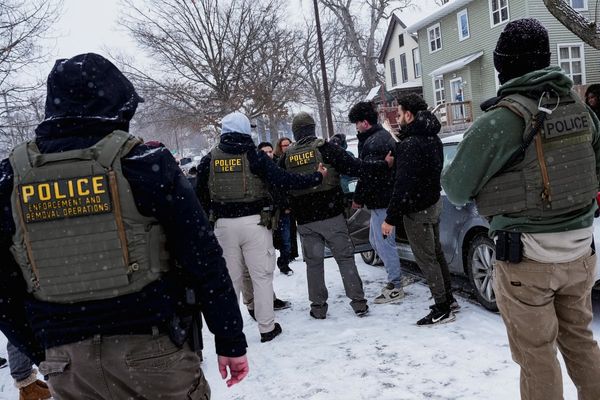Britain and India have struck a free trade deal hailed by Sir Keir Starmer as paving the way for cheaper prices in UK shops and boosting exports.
The agreement, which aims to increase bilateral annual trade by £25 billion by 2040, will see Indian tariffs “slashed” on a range of goods, with the UK also reducing some of its import levies.
The deal detailed “clear and agreed routes” by which these work transfers for business people and other professionals could happen between India and the UK, and vice versa.
A cap will be applied for some groups of workers including chefs and musicians.
The UK government said that the deal meant that UK’s points-based immigration system would not be affected.
A “double contribution convention” will mean Indian workers will not pay National Insurance contributions in both countries for the first three years of a transfer to the UK, and vice versa.
The UK’s Department for Business and Trade stressed that the agreement would “lock in” reductions on 90% of tariff lines, with 85% of these becoming “fully tariff-free” within a decade.
On specific items, the DBT outlined that:
* Whisky and gin tariffs will be halved from 150% to 75% before reducing to 40% by year ten of the deal.
* Car tariffs will fall from over 100% to 10% under a quota.
* Other goods with reduced tariffs include cosmetics, aerospace, lamb, medical devices, salmon, electrical machinery, soft drinks, chocolate, and biscuits.
The DBT said the reforms would initially mean cuts of more than £400 million in Indian tariffs, doubling to around £900 million after a decade.
As UK tariffs are cut, including on textiles to zero, British shoppers could see cheaper prices and more choice on products, the DBT added, including on clothes, footwear, and food products including frozen prawns as UK liberalises tariffs.
Britain’s services sector will get “market certainty” when trading in India and UK firms should also find it easier to bid for procurement contracts.
Sir Keir, who spoke to Indian Prime Minister Narendra Modi about the deal, said: “Today we have agreed a landmark deal with India - one of the fastest growing economies in the world, which will grow the economy and deliver for British people and business.”
Mr Modi stressed: "These landmark agreements will further deepen our comprehensive strategic partnership, and catalyse trade, investment, growth, job creation, and innovation in both our economies.”
The UK government claimed the agreement would add £4.8 billion to UK economy and £2.2 billion in wages a year by 2040.
Business and Trade Secretary Jonathan Reynolds and Indian Commerce Minister Piyush Goyal held final negotiations in London last week after more than three years of talks.
More liberal “rules of origin” have been agreed with India, as well as moves to speed up the movement of goods at borders.
The deal was announced as hopes of a trade agreement with Donald Trump’s administration in America have been fading.
Britain is also seeking to rebuild closer ties with the European Union, after the economic damaged caused by Brexit, with a summit due to be held in mid-May.







